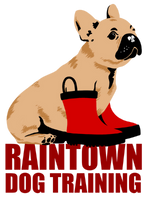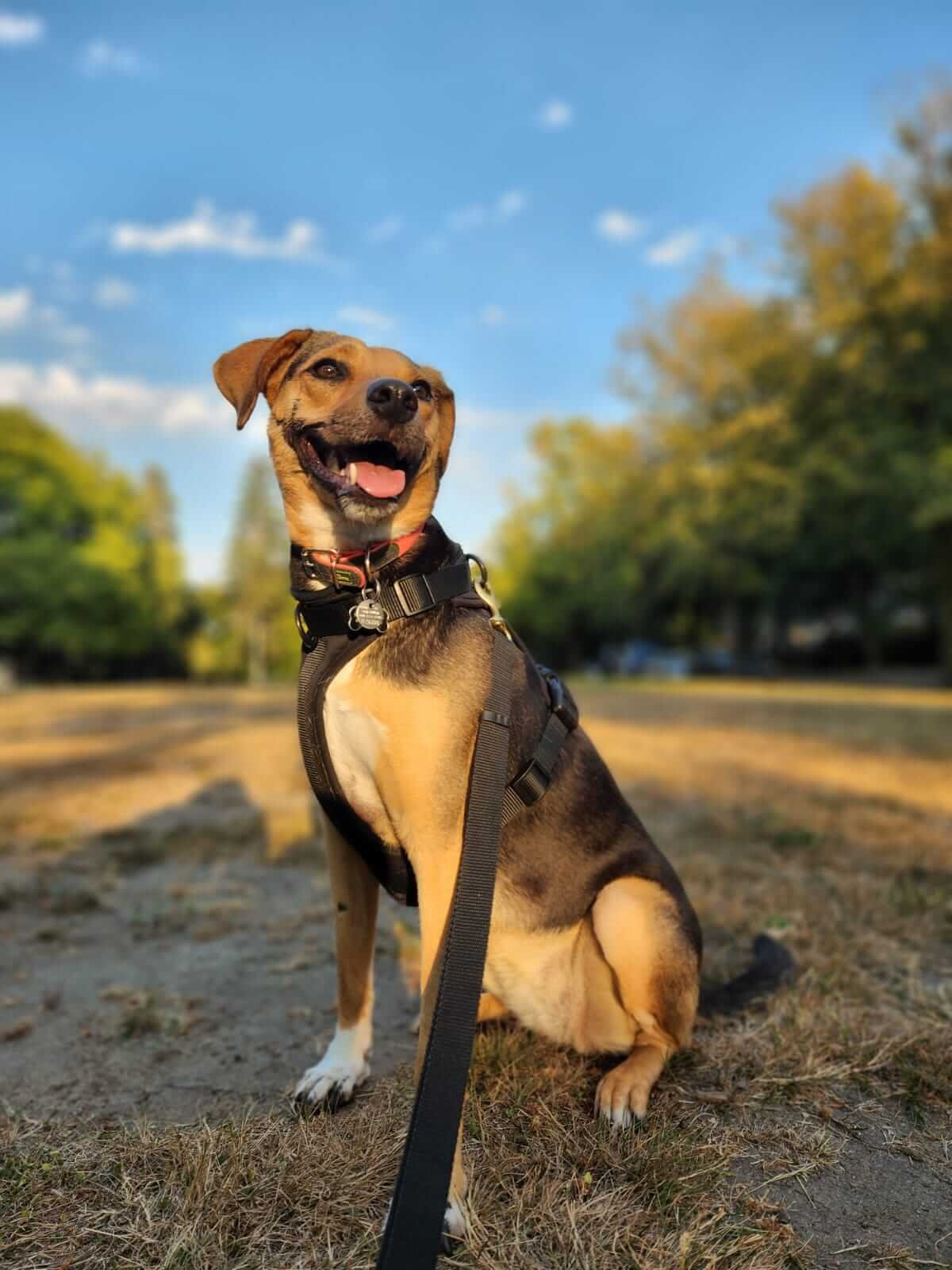Aggression on Leash: Causes and Solutions
Rhiannon van Lidth de Jeude Roemer, KPA-CTP
For pet parents, an otherwise friendly dog lunging and barking while on leash can be a puzzling situation. What causes these behaviours, and how do we best to handle them?
Tip 1: Keep The Leash Loose!
Restraint (such as leash tension) is inherently difficult for any dog. A tight leash reduces autonomy, increasing frustration and fear. Implementing proper management techniques can help to keep that leash loose and your pup relaxed! Keeping a distance from other dogs, using a longer leash, and practicing a U-turn on cue to keep your dog moving in tricky situations are all excellent options.
It is important, as well, to work on your own reaction to seeing your dog’s triggers. Instead of tightening that leash grip when you spot another dog, practice staying calm and using a happy tone of voice to keep their attention as you move quickly away.
Tip 2: Social Time for Social Dogs
Finding the right amount of social time for your individual dog can greatly reduce reactivity and/or frustration on leash.
For leash frustrated doggos, more off-leash playtime will satisfy their social needs and improve behavior. If you’re looking for a safe play environment, check out our trainer-supervised dog socials!
For leash reactive dogs, finding social settings they feel comfortable with may be a good solution, such as one-on-one playdates or group hikes (as opposed to daycare). Socializing in a controlled setting and going at their pace is key.
Thought of the month:
Leash Reactivity vs Leash Frustration
Let’s take a look into how we can tell whether your dog’s Jekyll-and-Hyde leash moments are caused by fear or by frustration.
Leash Frustration
If your pup is a social butterfly off-leash but a demon on-leash, frustration is the likely culprit! When a social dog wants to greet a furry friend but is restrained by a leash, it can cause frustration (resulting in barking, lunging, growling, etc). These dogs want to close the gap between themselves and the dog they’ve spotted.
Leash Reactivity
Dogs that suffer from leash reactivity are fearful - they want the other dog to go further away. These pups can be somewhat nervous/reactive in general, but once they hit the end of that leash on a walk, that underlying fear is exacerbated.
If you are struggling with aggression on leash, private coaching is the best option to set both you and your dog up for success. Reach out to a professional dog trainer for support!



